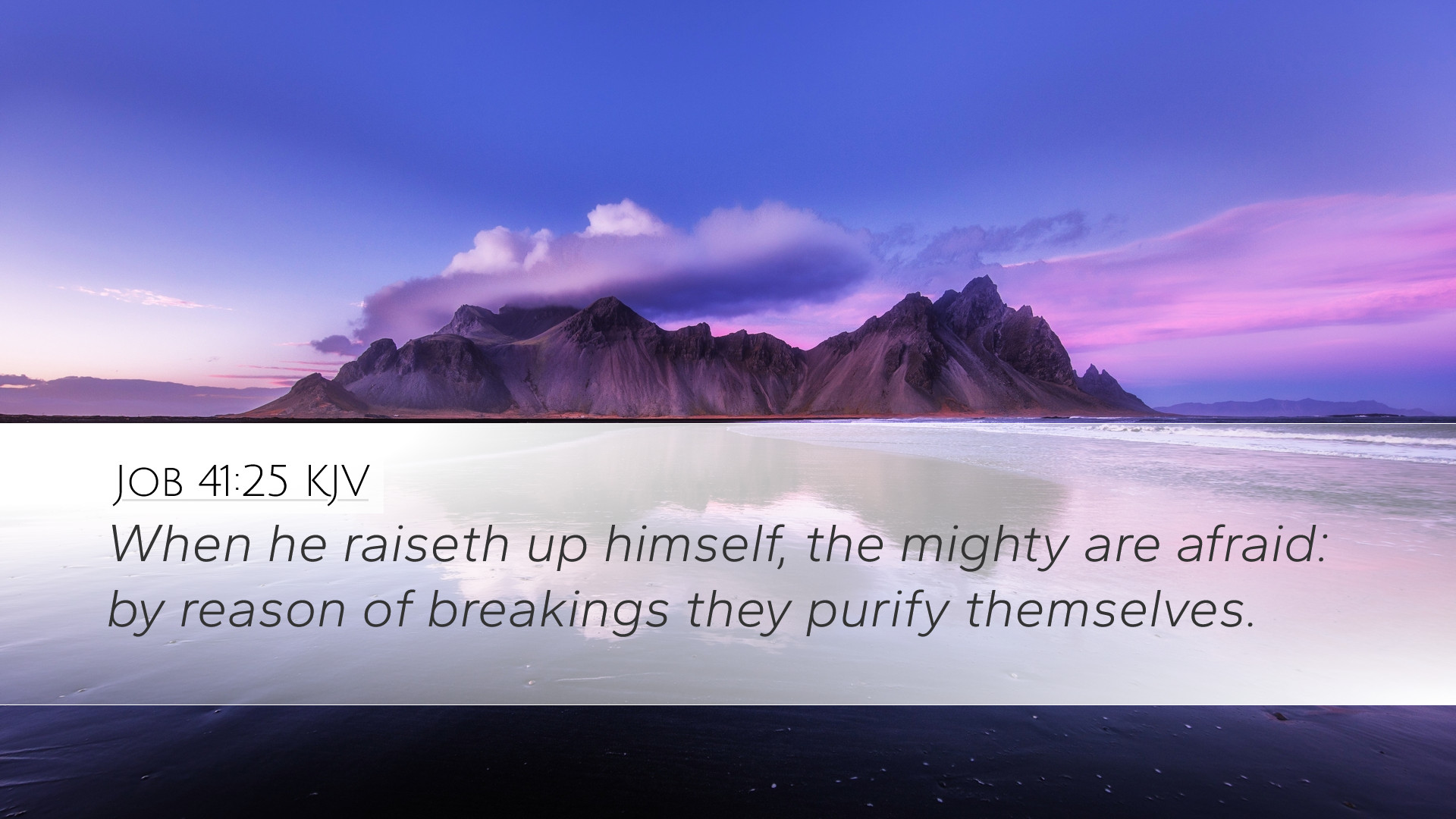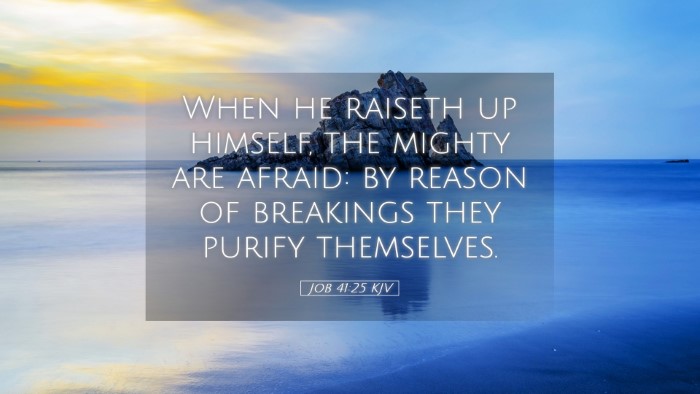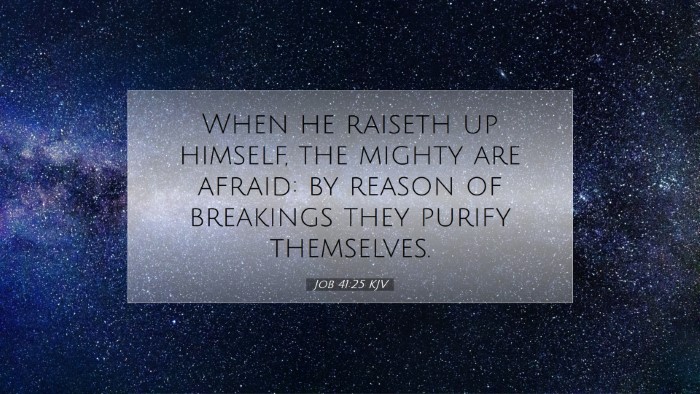Commentary on Job 41:25
Job 41:25 states, "When he raises himself up, the mighty are afraid; because of his crash they are bewildered." This verse is situated within the discourse on the Leviathan, a creature symbolizing the profound might of God in creation. Below is a synthesized commentary incorporating insights from revered public domain commentaries.
Contextual Background
The Book of Job is renowned for its exploration of suffering, divine justice, and the majesty of God. In chapters 38-41, God responds to Job, revealing His omnipotence through creation. The Leviathan, described in these chapters, serves not only as a literal creature but as a metaphor for chaos and the unfathomable aspects of God's creation.
Insights from Matthew Henry
Matthew Henry emphasizes the fear inspired by the Leviathan's might. He notes that the description of the creature’s power evokes awe and terror, paralleling how God’s majestic power can instill fear in the hearts of men. Henry argues that this fear serves a purpose in leading humanity towards reverence for their Creator.
- The Majesty of God: Henry illustrates that the response of the mighty when confronted with the Leviathan underscores the greatness of God, who has created beings that inspire dread.
- Divine Sovereignty: The portentous nature of the Leviathan signifies the sovereignty of God over all creation—a theme recurrent throughout the Book of Job.
Insights from Albert Barnes
Albert Barnes provides a more detailed analysis of the descriptive language employed in this verse. He suggests that the mention of the 'mighty' becomes central in understanding human fragility in relation to God’s creations.
- Human Vulnerability: Barnes points out that the fear of the mighty reflects the innate vulnerability of humanity—illustrating that even the strongest among us are but creatures before the Creator.
- The Might of Creation: He elaborates that the intimidation felt by the mightiest men is indicative not just of physical strength but of the overwhelming presence of an Almighty God behind the wonders of creation.
Insights from Adam Clarke
Adam Clarke takes a linguistic approach, analyzing the original Hebrew text for further depth in interpretation. He emphasizes the connotation of 'raising up' as it relates to both physical power and the metaphorical elevation of God’s authority over all creation.
- Symbolism of the Leviathan: Clarke contends that the Leviathan symbolizes not just physical destruction but also the catastrophic chaos that can occur when mankind tries to operate outside of God’s ordained order.
- The Nature of Fear: Clarke notes that in recognizing the power of such a creature, one must also acknowledge their own limitations, as God naturally evokes reverence and awe among His creation.
Theological Reflection
In synthesizing these perspectives, several theological reflections emerge:
- God's Omnipotence: The verse resounds with the truth of God’s supreme power, illustrating that nothing in creation can stand against Him.
- The Nature of Fear and Reverence: The fear that strikes the ‘mighty’ draws parallels with how God desires us to approach Him—with awe and reverence.
- The Role of Chaos in Creation: The Leviathan as a metaphor for chaos invites reflections on how God exercises control over the chaos in our lives, leading us to trust in His sovereignty.
Conclusion
Job 41:25 serves as a profound reminder of the majesty and power of God, and the implicit call for humility from mankind. As pastors, scholars, and students of the Word reflect on this verse, it is critical to consider how the fear of God, illustrated through the might of the Leviathan, should shape our understanding of divine sovereignty and our place within creation.


